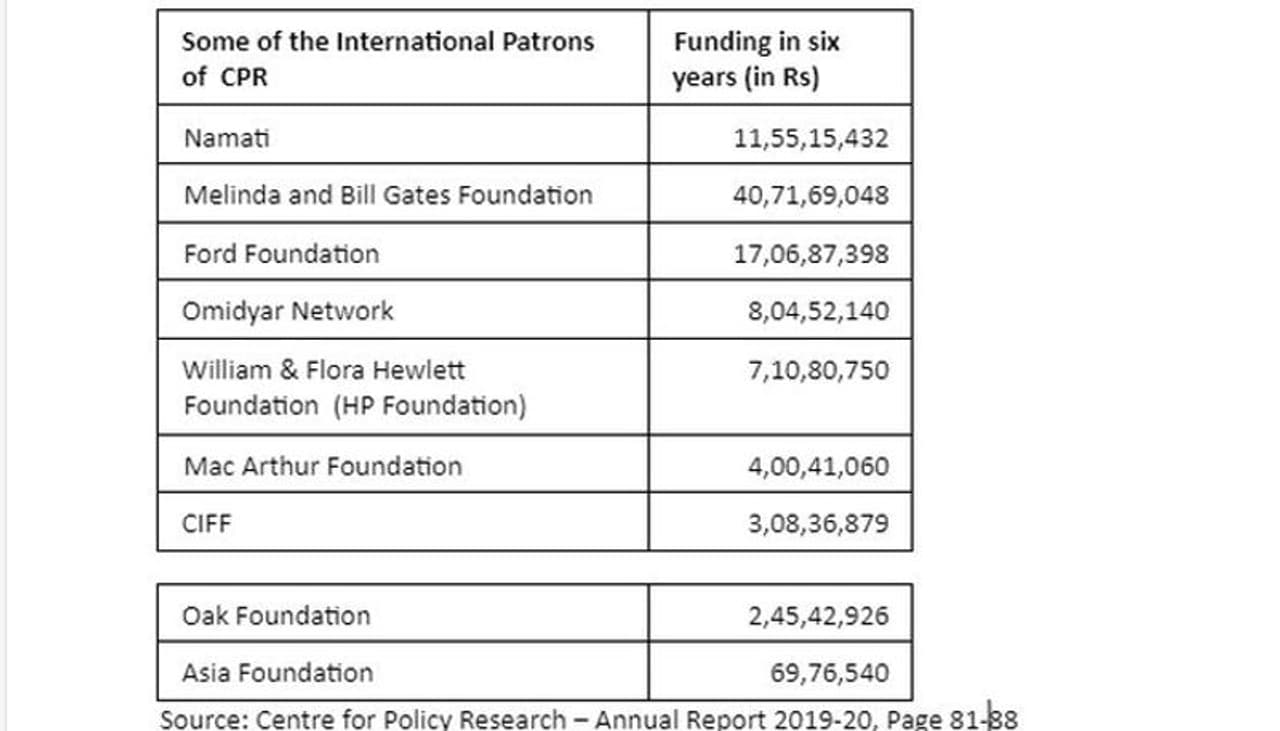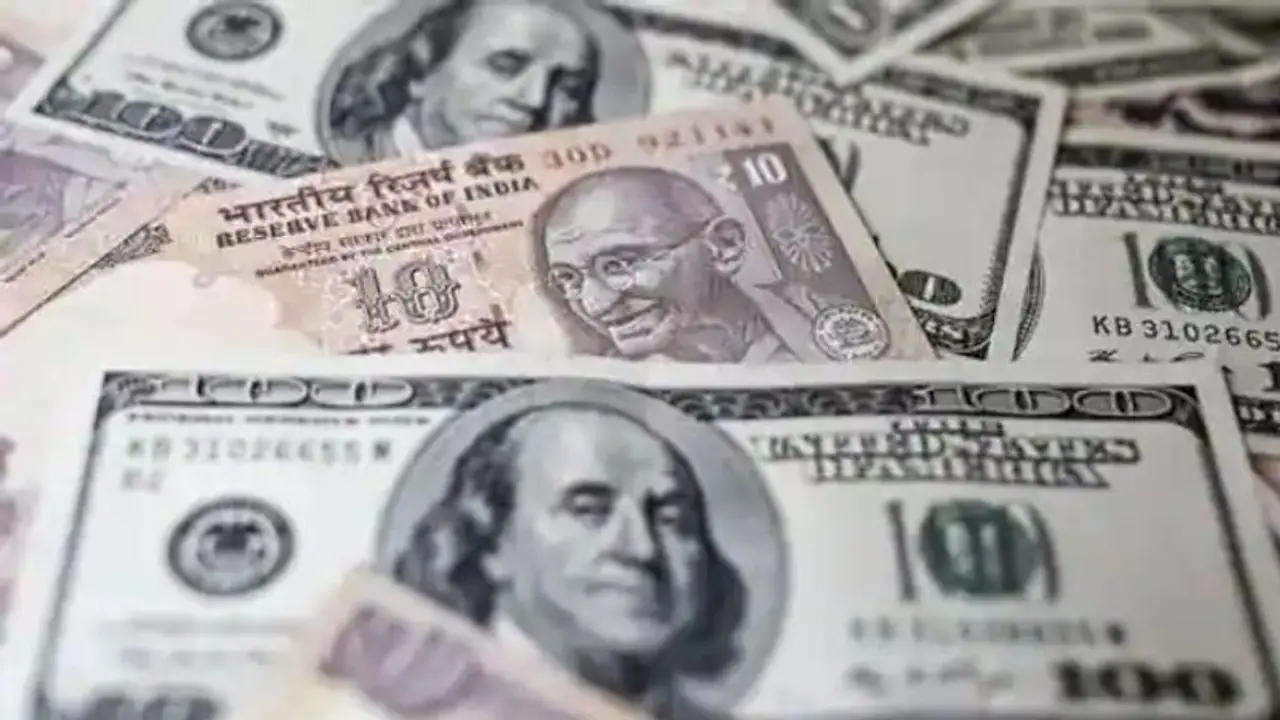For years, there have been murmurs about think tank CPR for its agenda-driven research subjects by the researchers having links with other institutions and entities that are better known for not posing similar questions to developed nations where their patrons are based at. Binay Kumar Singh explains
After the search operations by the Income Tax Department at the Delhi-based think tank Centre for Policy Research and charity organisation Oxfam India, questions over their conduct and funding have started floating again. The curiosity is also growing because the Income Tax Department has remained tightlipped as of now. Possibly, it may take slightly longer for the investigators to fix all the pieces of the puzzle since analysing and relating financial data of past years is not an easy task. Hence, it would be interesting to explore the reasons behind this unusual move by the Income Tax Department to crack this high-profile think tank and charity organisation.

The Department also conducted a search at the Bengaluru-based Independent and Public-Spirited Media Foundation (IPSMF), which is better known for funding the Caravan, The Wire, HW News Network, Article 14 and The Citizen, among other media platforms. In this piece, let us first understand the CPR and IPSMF profiles.
Centre for Policy Research
For years, there have been murmurs about think tank CPR for its agenda-driven research subjects by the researchers having links with other institutions and entities that are better known for not posing similar questions to developed nations where their patrons are based at. Last Friday, CPR stated, "As one of 24 research institutes of the Indian Council of Social Sciences Research (ICCSR) network, CPR has all requisite approvals and sanctions and is authorised by the government as a recipient under the Foreign Contribution (Regulation) Act."
The rest of the statement also carried the common phrases such as 'full cooperation' and' highest standards of compliance, 'done nothing wrong' and 'committed to our mission' that are generously used once the watchdogs knock on the door. While it conveniently named ICCSR in its statement, CPR remained silent about the foreign funding that is much higher than the domestic funds.
For instance, a closer look at the CPR’s annual report for the financial year 2019-20 reveals that it received a whopping Rs 32,81,51,528 donations from overseas, almost eight times higher than the domestic fund of Rs 4,13,09,689. During the financial years 2015-16 and 2020-21, CPR is estimated to have received foreign grants of close to Rs 100 crore only for ‘educational purpose’. Interestingly, CPR does not run any academic or educational institution.
The CPR website reads, "CPR brings together India's best thinkers and policy practitioners who are at the forefront of research and engagement in the policy space, drawing from various disciplines and professional backgrounds."
However, its list of 'Faculty', 'Faculty Emeriti' and 'Researchers' consists of people who are often associated with foreign institutions and entities. Hence, the Indian government should see that country's sensitive data and information do not go into foreign hands through the so-called scholars.
After all, CPR representatives enjoy easy access to the data and information in addition to networking with the policymakers in the guise of research. If foreign journalists wanting to report from India should go through the well-defined clearance process, there is no reason why the researchers affiliated with the CPR or any other think tank should get access to India without scrutiny!
The very purpose of ICCSR and the government of India was to benefit from such think tanks in policy making. Instead, some think tanks seem to be a tool for foreign powers to dominate India's policy-making and tweak their own policies to benefit from the Indian situation. Profiles of people at CPR and their areas of interest should be carefully examined.
Let us come back to the contentious issue of foreign funding in CPR. Some of the notable international patrons of CPR and their respective contributions are listed at the end of this article. One of the benefactors, Namati, is a peculiar case regarding allegiances of almost five-decade-old CPR headed by veteran Congress leader Mani Shankar Iyer's daughter Yamini Iyer. Funded by George Soros, the Open Society Foundation is a founding member of Namati. Soros has a history of destabilizing economies, funding protests, and even infuriating proxy wars in developing countries.
It is worth mentioning that CPR is the only paralegal partner of Namati in India. It means there is a possible violation of FCRA since Namati is funding legal cases in India through CPR, which is supposed to be engaged in only research and educational activities.
It is not the first time that the governance standards of CPR have been questioned. Earlier in 2015, CPR faced a criminal complaint by the Delhi Police for breach of trust in a recruitment scam at the Airports Authority of India (AAI). The CPR had deviated from its core objective to set up an examination cell. AAI hired the CPR to conduct examinations to recruit employees who were to manage sensitive assignments at the aviation authority. However, the allegations of tempering the examination results to favour certain candidates surfaced, and CPR promptly decided to wind up the examination cell.
Independent and Public-Spirited Media Foundation
Now comes the role of IPSMF, which offers a bouquet of media platforms to amplify the content generated by CPR in the name of the research with the aim to swing the
opinions for or against the government policies to suit its own agenda. A simple Google search will offer insights into this nexus.
So let us return to George Soros, who has also promoted the Media Development Investment Fund (MDIF) through the Soros Economic Development Fund. Curiously, the investment director of MDIF, Koreel Lahri, was the Chief Operating Officer at IPSMF before joining MDIF in 2017.
Following is the list of international organisations such as the Bill and Melinda Gates Foundation, Oak Foundation, Ford Foundation, William and Flora Hewlett Foundation and the Mac Arthur Foundation. We will talk about them more while looking into the affairs of Oxfam. After all, their nexus in India is not limited only to CPR. Oxfam India is also the beneficiary of these 'patrons'.

The author is Senior Research Fellow for Strategic Studies at the Dr Syama Prasad Mookerjee Research Foundation. Views expressed are personal and do not, in any way, reflect Asianet News Network's views.
